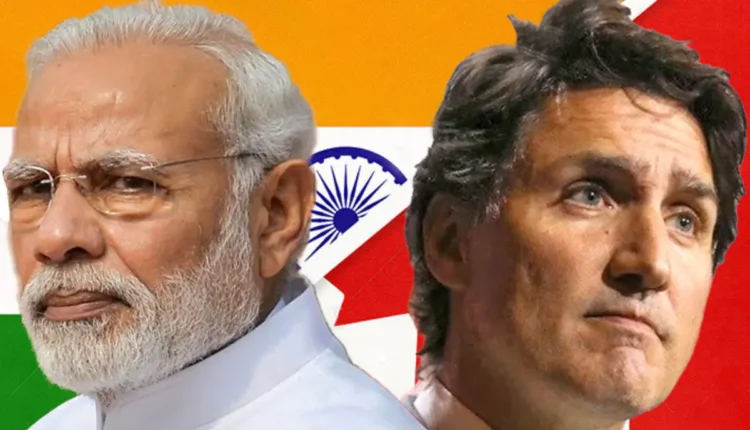India-Canada Diplomatic Fallout: What It Means for Visa Applicants and Families
Navigating Visa Challenges Amidst India-Canada Diplomatic Tensions
The ongoing diplomatic fallout between India and Canada has thrown visa applicants into a state of uncertainty, with significant repercussions for students, families, and businesses. The strained relations between the two nations, sparked by accusations and retaliatory diplomatic measures, are now taking a heavy toll on visa processes, further affecting individuals with ties to both countries.
India-Canada Diplomatic Fallout: Impact on Visa Services
In the wake of rising tensions, India expelled six Canadian diplomats, following Canada’s withdrawal of over two-thirds of its diplomatic staff in India. The decision to downsize diplomatic presence on both sides has raised concerns over delays and disruptions in visa services. Students, families, and businesses are finding it increasingly challenging to secure visas as processing times grow longer, potentially affecting future plans for travel, education, and employment.
The Ministry of External Affairs (MEA) in India stated that it “reserves the right to take further steps” in response to Ottawa’s allegations regarding the involvement of Indian diplomats in the killing of Khalistani terrorist Hardeep Singh Nijjar. While India has strongly denied the accusations, diplomatic relations have deteriorated, and visa applicants are caught in the crossfire.
Visa Challenges for Indian Students
The diplomatic standoff comes at a particularly difficult time for Indian students aspiring to study in Canada. Indian students make up more than 41% of Canada’s international student population, but with the recent visa cap introduced by the Canadian government and the shrinking diplomatic presence in India, the future looks uncertain for many.
Earlier in 2024, Canada announced a reduction in international student visas, capping them at 360,000 for two years. This 35% decrease from the previous year has disproportionately impacted Indian students, and the current diplomatic crisis is making matters worse. Many students who were hoping to start their academic journeys in Canada are now facing delays in visa approvals and, in some cases, outright rejections.
For students like Kunal Saini from Hoshiarpur, Punjab, the dream of studying in Canada now feels out of reach. “My future feels uncertain now. I was counting on getting my student visa this year, but now, I’m not sure if that will happen,” Kunal shared. His concerns are echoed by many other students whose plans have been disrupted by the diplomatic fallout.
Families Torn Between Two Nations
Families with ties to both India and Canada are also feeling the impact of the diplomatic rift. Canada has long been a favored destination for Indian immigrants, especially from Punjab, with thousands of families maintaining close connections across the two countries. Many Indians in Canada had hoped to travel back to India for family events, but the visa uncertainty has now put those plans on hold.
The suspension of visa services in late 2023 exacerbated these concerns, though India has since resumed business and medical visa processing. Still, the uncertainty looms large, particularly for family visits. The visa challenges have also impacted the Non-Resident Indian (NRI) community, many of whom traditionally return to India during the holiday season. This year, however, fewer NRIs may be able to make the trip due to visa restrictions and processing delays.
Rajesh Marwaha, a father from Kapurthala whose son recently moved to Canada on a student visa, expressed his worries about the situation. “I am concerned about whether I will be able to visit my son in Canada. The visa challenges and the growing diplomatic tensions make it difficult for families like mine to stay connected,” he said.
Economic Impact on Businesses and NRIs
The strained diplomatic ties are not only affecting individuals but also businesses in India, particularly those catering to NRIs and the travel industry. Travel agents have reported a significant drop in bookings from Canada as the uncertainty over visa approvals continues. “Many NRIs are postponing their trips due to the uncertainty around visas. The typical NRI visit season has already been impacted, and this situation is likely to worsen,” said Inderpal Singh, a travel agent based in Kapurthala.
The fallout could also have broader economic consequences. With direct air connectivity between India and Canada possibly affected and fewer visas being approved, businesses that rely on international travel and trade between the two nations may experience a downturn. Many shop owners in Punjab who depend on the seasonal influx of NRI customers are already seeing a slowdown.
Diplomatic Rift: The Road Ahead
Currently, the diplomatic tensions between India and Canada continue to escalate, and the impact on visa services, air travel, and trade remains a growing concern. While India has gradually resumed some visa categories, the overall uncertainty around visa processes and approvals has yet to subside. Both countries have historically shared strong economic and social ties, but the current conflict risks damaging these relations further.
Canadian Immigration Minister Marc Miller’s comments on reducing the influx of temporary residents, including international students, have added to the anxiety of those hoping to build a future in Canada. “Canadians want a system that is not out of control,” Miller stated, highlighting the growing scrutiny over immigration policies in Canada.
Also Read:Anjali Dayalji Mulari: The Face of Women’s Ice Hockey in New Zealand

